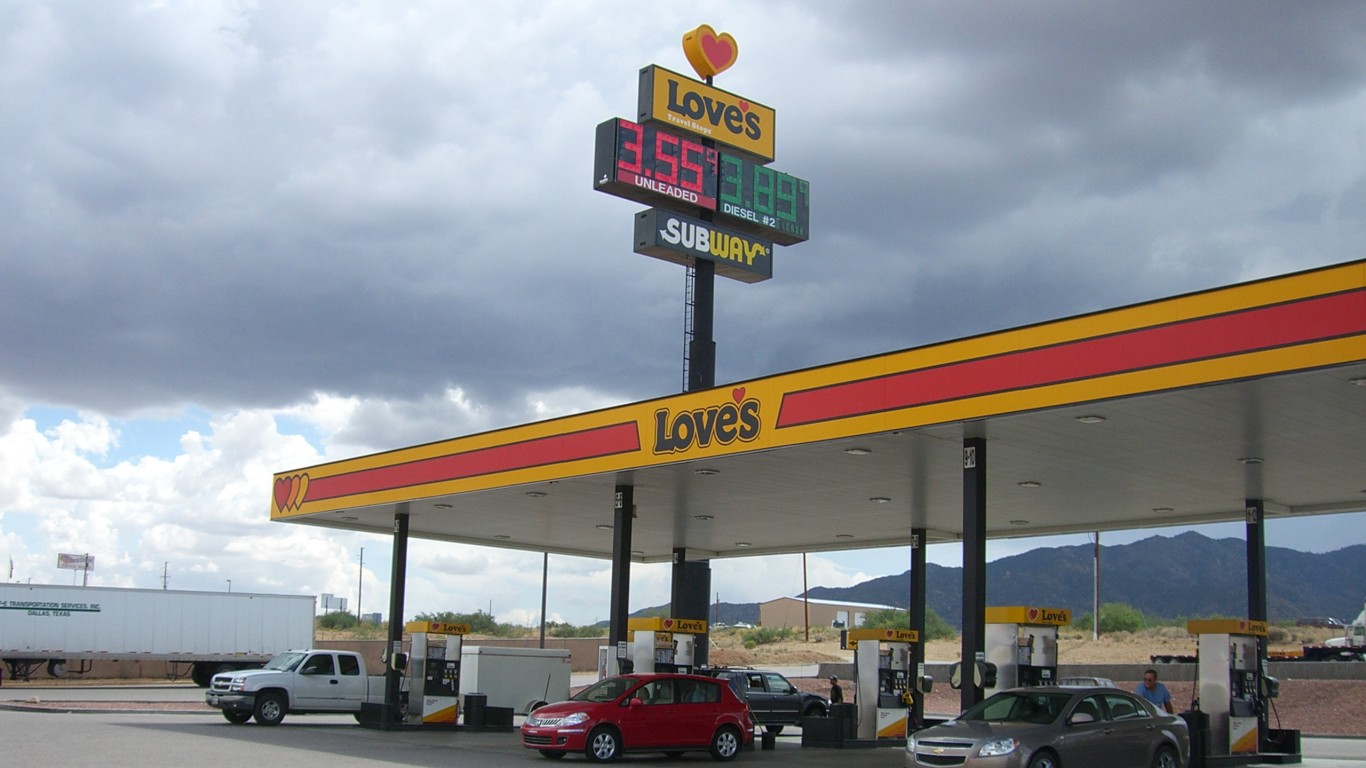 Fifteen months ago, the price of a gallon of regular gas was well below $3 a gallon, according to AAA data. It came close to the $4 level six months ago, but fell off to well below $3.25 at the start of autumn. The direction has quickly reversed and the price has begun to rise rapidly again. It is another threat to the recovery of U.S. GDP, when there are already plenty.
Fifteen months ago, the price of a gallon of regular gas was well below $3 a gallon, according to AAA data. It came close to the $4 level six months ago, but fell off to well below $3.25 at the start of autumn. The direction has quickly reversed and the price has begun to rise rapidly again. It is another threat to the recovery of U.S. GDP, when there are already plenty.
The average price per gallon of regular nationwide is just below $3.39. A month ago, the number was $3.24. The longer WTI crude stays near $100, the more quickly that price will rise toward $3.50. The threat that gas prices will affect consumer spending will return to the top of the list of threats to the recovery.
The trouble in the Strait of Hormuz is recent, as are strikes in Nigeria that threaten production in and exports from the central African nation. Investment banks such as Goldman Sachs (NYSE: GS) and Morgan Stanley (NYSE: MS) worry that a supply crisis will push crude prices to between $150 and barrel and $200. Gas prices for regular would move above $4 on average. It is easy to find economists who think that figure it too high and that it will affect what the normal middle-class family can pay for other goods and services. Gas will once again match housing and unemployment as a part of the U.S. economic disaster.
The general public and the media have not tracked gas prices recently — certainly not to the extent of home prices and unemployment. That is about to change.
Douglas A. McIntyre
Essential Tips for Investing: Sponsored
A financial advisor can help you understand the advantages and disadvantages of investment properties. Finding a qualified financial advisor doesn’t have to be hard. SmartAsset’s free tool matches you with up to three financial advisors who serve your area, and you can interview your advisor matches at no cost to decide which one is right for you. If you’re ready to find an advisor who can help you achieve your financial goals, get started now.
Investing in real estate can diversify your portfolio. But expanding your horizons may add additional costs. If you’re an investor looking to minimize expenses, consider checking out online brokerages. They often offer low investment fees, helping you maximize your profit.
Thank you for reading! Have some feedback for us?
Contact the 24/7 Wall St. editorial team.


